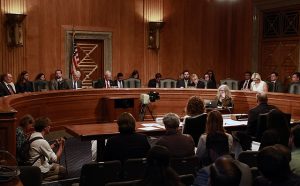The Senate Homeland Security and Governmental Affairs Committee recently moved forward on Senate bill 3905, which would require federal contractors to, among other things, continually disclose potential conflicts of interest.
The bill’s momentum comes on the heels of recent news reports of McKinsey Global performing consulting work for entities linked to China and Russia while simultaneously providing advisory services to the Pentagon. Similar conflict of interest concerns were raised in connection with the firm’s role in advising opioid manufacturers while also taking on engagements with their regulators at the Food and Drug Administration.
“Federal contractors like McKinsey have acted against the best interest of our country, communities, and citizens,” said Senator Maggie Hassan (D-NH) during a hearing. “I'm also glad that the committee adopted my amendment that requires that the federal government update its rules to make it clear that individuals doing contract work for a federal agency should not simultaneously work for a business that is regulated by that same agency.”
While it is unclear that the bill would have had led to McKinsey’s disclosure of its engagement with Russian weapons manufacturer Rostec, if it had been in force previously, Senator Hassan said that the bill would require contractors to disclose “whenever they develop conflicts of interest during their work for federal agencies, not just conflicts that exist at the time that they sign a contract with a federal agency.” A McKinsey spokesperson told NBC News that the simultaneous engagements were not viewed as a conflict of interest because the firm adheres to strict organizational firewalls, and that work for the U.S. government is performed through a separate legal entity.
During the hearings, industry executives spoke out on their concerns that the bill would worsen an already challenging shortage of federal procurement officials, who often move jobs back and forth between government and the private sector, something the new bill would clamp down on. An additional potential amendment would prevent companies that contract with the federal government from sharing information with their private sector clients, with strong penalties included for violators. The committee is continuing to work on amendments intended to address this shortage as the legislation moves forward.

























